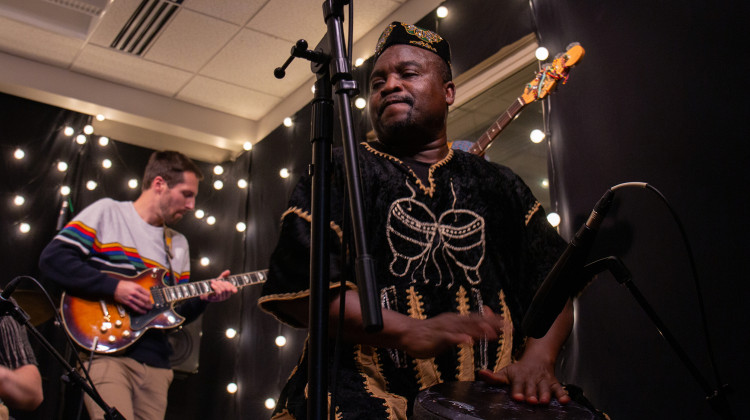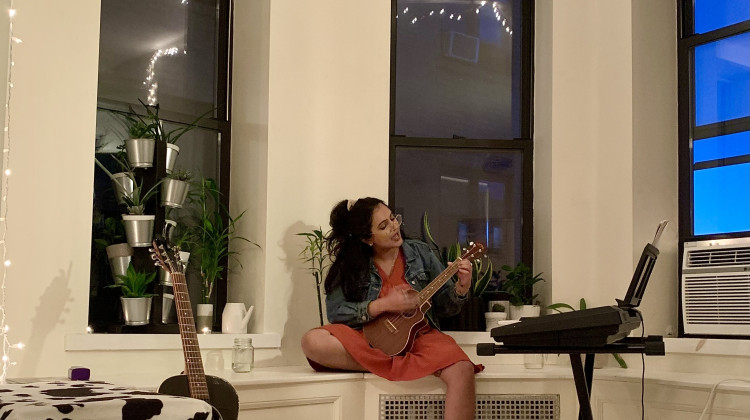
Imani Alpha (left) and Kwesi Brown (right) perform as Sweet Poison Victim for WFYI's Small Studio Sessions.
File Photo / WFYISweet Poison Victim are an Indianapolis band known for their unique blend of West African music and rock and roll.
The group recently recorded a live set for WFYI’s Small Studio Sessions. After the session, WFYI’s Kyle Long spoke with the band’s leader Kwesi Brown. Brown told Long that the band’s name was inspired by a medicinal alcoholic tonic from his homeland, Ghana.
This transcript has been edited for style and clarity.
Kyle Long: Tell us how the band came to be named Sweet Poison Victim. What is sweet poison?
Kwesi Brown: Well, sweet poison is the name for moonshine from Ghana. When you add sweet poison to different kinds of roots, which is medicinal, you know, then people drink it. But how we became Sweet Poison, when we started playing together, I brought stuff like that. We were having fun, we drank it, some of us got drunk, others got tipsy, so we all fell victim to it.
But what is unique about the name is that we have the alcohol itself, the liquor, and then about 24 different kinds of roots, right? Every root has something to do when it comes to medicine. Then when you put it together, it performs wonders, it's different.
That is our background, this band itself, we are people from Africa, South America, all these people who are talented, you know, they perform nicely by themselves. But then when we come together, just like the roots on the drink, we can mess you up with music.
Long: You mentioned that the background of all the members is very diverse, right? And so is the musical influence of the band, but a lot of the music is rooted in your culture, right?
Brown: Well, I started performing traditional music when I was growing up because my grandmother is a traditional priestess. My father is a priest, a Methodist priest. So my father, being a Methodist priest, he didn’t like to see me going to my grandmother's house. You know, with the traditional priestess, to do stuff like that.
But I kept going there because they use music in their worship every morning, you know, to invoke deities and stuff. So I always went there because of the music and most importantly, to steal alcohol from my grandmother's shrine. Yeah, but my dad didn't want me to go.
Long: I’ve watched this band for years and you have a lot of fans in your audience that are immigrants. Several people in the band are immigrants. Over the last six months, we've seen a demonization of immigrants unlike anything I've experienced in my life. How do you feel about that?
Brown: As an immigrant myself, you know, I know what is going on and how bad it is. I mean, as a band, we've not talked about this or how to handle this. We don't know who is out there trying to promote us, or bringing us down.
Because right now, I'll tell you a lot of people when they see you, you know, because of what they hear, you know, I have gone through a lot that. I don't pay attention to this. You know, we are just like a broom. When you take one, you can easily break it. But when you add a bunch, it's difficult. So when you see us together, don't try.
This interview originally aired on WFYI's Cultural Manifesto.
 DONATE
DONATE








 Support WFYI. We can't do it without you.
Support WFYI. We can't do it without you.